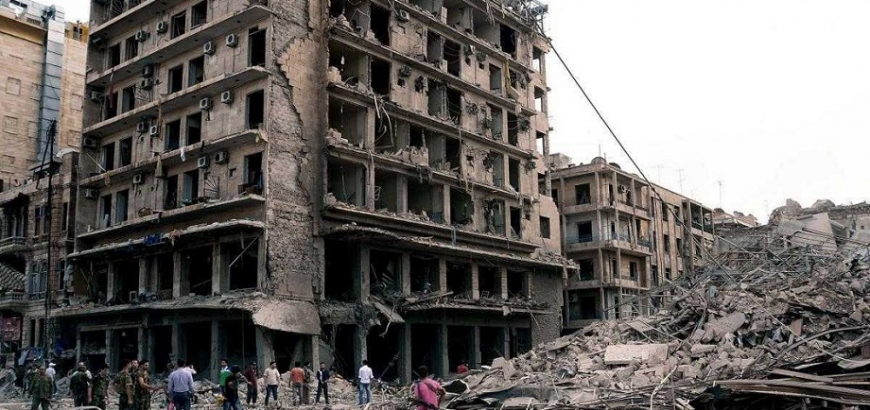The evacuation of displaced people from chalets that belong to The Trade Union of Ras al-Bassit in Latakia province has begun. Displaced people have occupied these chalets since the start of the war about seven years ago.
The Trade Union justified their decision to evacuate the displaced people, according to media, by saying that security has returned to Aleppo, and that the displaced people should return to their homes and repair those that were damaged. They said that the displaced people were informed of the evacuation decision two months ago, and they were given a deadline of the start of August so that the chalets can be rehabilitated and prepared for use in the future. They had previously been given to the displace people, who only paid a symbolic monthly rent or sometimes, no rent at all.
The displaced people refused to evacuate the rented chalets, because they do not have the money to repair their damaged homes, according to reports on social media. Additionally, the basic services in their areas of Aleppo have not been sufficiently restored given the damage to infrastructure, and the government has not yet rehabilitated the area in a way that would allow residents to return there.
The evacuation decision coincides with the opening of schools, which will increase the concerns of the displaced people. The Deputy Governor of Aleppo, Hamid Kamino, said in a statement to to the Russian Novosti news agency that the government had launched a program to rebuild Aleppo city last week. Fighting in Aleppo ended in 2016, and the government should have begun the reconstruction process at that time to enable displaced people to return home without obstacles.
This article was translated and edited by The Syrian Observer. Responsibility for the information and views set out in this article lies entirely with the author.


